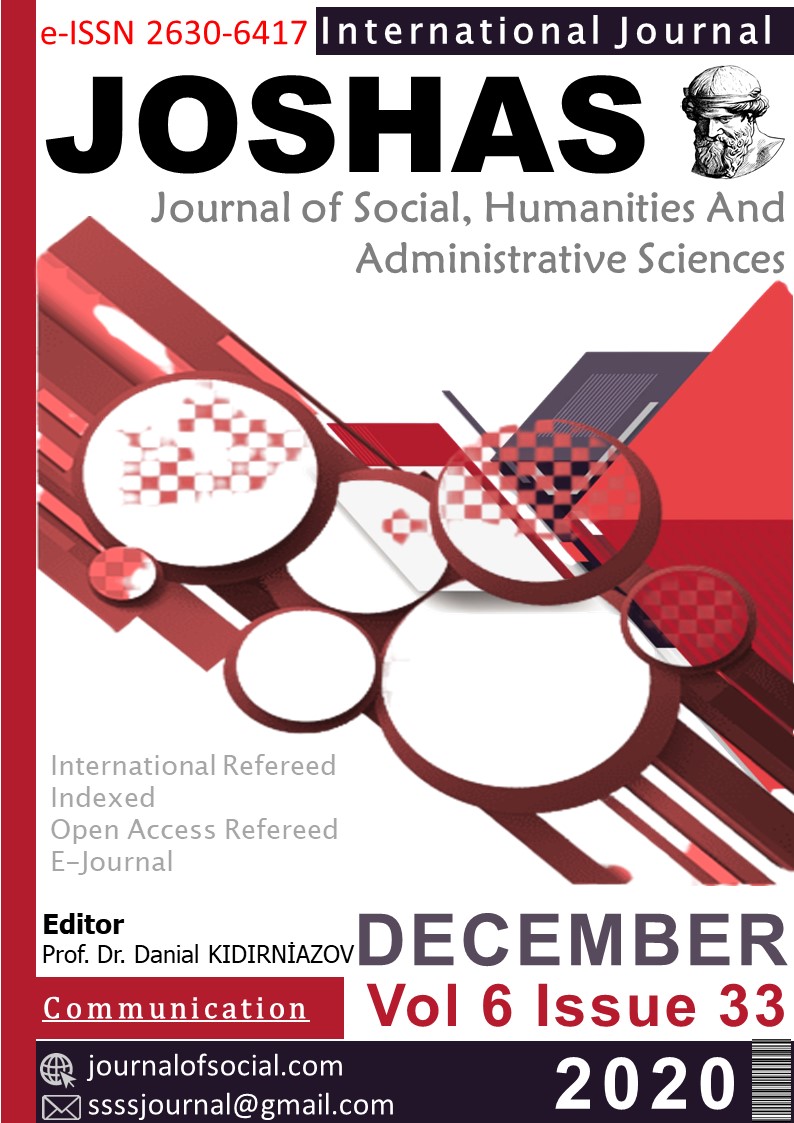Author :
Abstract
Hediye kavramı antropoloji, sosyoloji, iktisadî antropoloji, kültürel antropoloji gibi farklı bilim dallarınca farklı açılardan ele alınmıştır. Örneğin, sosyal psikolojide hediyeyi verenin hem kendisini hem de karşı tarafı nasıl algıladığını ifade etmeye çalıştığı karmaşık bir süreç olarak ele alınmıştır. Sosyolog Marcel Mauss’a göre ise hediye isteğe bağlı olmakla birlikte bazı yükümlülükleri de beraberinde getirir. Hediyeleşmenin geçmişi ise arkaik toplumlara kadar uzanan ve günümüzde de devam eden bir sürekliliğe sahiptir. Hediye, bütün kültürlerde görülen evrensel ve işlevsel bir kültür unsurudur. Hediyeleşme eylemine her bir toplum farklı kültürel özellikleri sebebiyle, farklı sembolik, ekonomik anlamlar yüklemekte ve hediyeleşme süreci kültürden kültüre ve aynı kültürde zamanla farklı biçimlerde ve sosyal yoğunlukta gerçekleşmektedir. Türk kültüründe ise lutûf, iyilik, bağış, bahşiş, mükâfât, etkileme, teşvik, takdir, yardımlaşma, dayanışma, himaye etme, sadakat vb. kavramlarla da ilişkilendirilebilmektedir. Hunlar, Göktürkler ve Uygurlar gibi en eski Türk devletlerinden Osmanlılara kadar devlet hayatında önemli bir yeri olan hediye teatisi özellikle hakimiyetin tesisi bakımından devletin kuruluşu ya da otorite boşluklarında daha da önem kazanmıştır. Bilindiği gibi birçok medeniyetin beşiği olan Orta Asya, pek çok milletin, halkın, inancın ve mezhebin bir arada yaşadığı ve kültürel zenginliklerin bir arada bulunduğu bir mekan olmuştur. XVI. yüzyıl Doğu Türklük sahası coğrafyasında Babur Şah önemli bir şahsiyet olarak karşımıza çıkmaktadır. Bu bağlamda 1526’da Delhi’de kurulan Babur Devleti’nin (Gurkanlı Devleti) kuruluş aşamasında da sultan ile maiyeti arasında kul-hükümdar ilişkilerini perçinleyen hediye alışverişi görülmektedir. Bu bildiride devletin kurucusu Zahîreddin Muhammed Babur’un hatıralarından (Vekayi) yararlanılarak devlet olma sürecinde hediyeleşme konusu ele alınarak hediyeleşme geleneğinin Babur Devleti’ndeki tezahürlerine işaret edilecektir.
Keywords
Abstract
The concept of gift has been tackled by different fields of science such as antropology, sociology, economic antropology and cultural antropology from different perspectives. For example, in social psychology, the manner of the person who gives the gift, has been handled as a complicated process which the givers of the gift try to express how they perceive themselves and the opposite side. According to Sociologist Marcel Mauss, gift is based on demand but requires some obligations. Background of the exchange of gift has a continuity dating back to archaic societies and continuing at the present time. Gift is a universal and functional culture element which is seen in all cultures. Each society attributes different, symbolic, economic meanings to the activity of the exchange of gift because of their cultural differences and the process of the exchange of gift takes place with different styles and on different social density within different and same cultures. In Turkish culture however, the exchange of gift may be associated with the concepts of favor, donation, tip, award, influence, incentive, appreciation, cooperation, solidarity, protection and fidelity. Exchange of gift, which has a significant role among the oldest Turkish States such as Huns, Gokturks and Uighurs to Ottoman Empire, became much more important for the establishment of the State and for authority gaps in terms of the establishment of domination. As it is known, Central Asia which is the cradle so many civilizations has been a venue that compromised various nations, people, believes and sects living together and cultural richness existed together. Babur Shah is such an important person in the 16th century East Turkishness field. In this regard, the exchange of gift has been observed between the Sultan and Servitor which clinched the servant-sovereign relations at the stage of the establishment of Babur Empire which was founded in 1526 in Delhi. In this declaration, the indications of the tradition of the exchange of gift in Babur State will be demonstrated by tackling the subject of the gift-giving at the stage of being a State by utilizing the maps of Zahîreddin Muhammed Babur who is the founder of the State.





